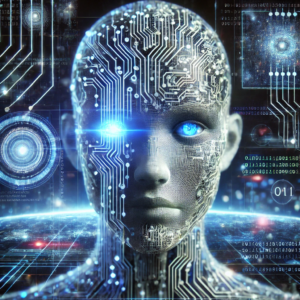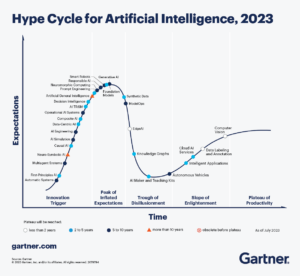Introduction

True AI, or artificial general intelligence (AGI), implies the ability to mimic human reasoning, adapt to new situations, and solve problems in a wide range of contexts. However, most of what is referred to as AI today is more about automation, data-driven decision-making, and machine learning, which excels in specific tasks but lacks the holistic understanding that real intelligence implies. Whereas Machine Learning (ML) focuses on algorithms that learn from data without being explicitly programmed
Powered by AI?
In more and more advertisements and marketing collateral are all peppered with AI, ML, Autonomous or some variant thereof. But when you think about it, what does powered by AI really means. So I decided to dive in. I examined three different services in some detail.
- Workday's AI driven HR
- Juniper's AI driven support
- Duolingo's AI powered language learning
Workday's AI driven HR
When I looked at the services that Workday claims to provide by AI, the things that stood out for me were mostly around candidate matching, skills matching, and insights in several domains. Honestly, none of this is AI driven. All of this can be and has been done using analytics in spreadsheets on a smaller scale or BI tools for enterprise scale. As far as the matching is concerned, I believe it is more miss than hit. The beauty of humans is the unpredictability and un-repeatability. That's why there term human error is common place. It is very rare for a human to repeat the previous step / action exactly.
The other areas that the AI falls short is decision support system or sentiment analysis. Making decision based on varying data points is not easy. Humans can do it very easily but machines fail spectacularly in actually helping with decisions or sentiment analysis. The point I am trying to make is that everyone writes their resume and skills differently. Companies have tried to standardize it by providing drop down lists, but then they dilute it by allowing candidates to enter their skills as free text. This leads to a very low percentage of candidate matching using the Application Tracking System (ATS) which many companies use to screen resumes automatically.
Juniper's AI driven support
Being from IT operations background, this is was more interesting to me than the others. I read through Juniper's solution briefs, web pages as much as I could without giving my email or contact information and I came away a little disappointed. The whole pitch is based on analysis of past data and Juniper claims to use 9 years of reinforced learning to deliver that platform. I was looking for predictive detection and auto-heal / self heal of issues. All the solutions talked about were accurate troubleshooting help, quick deployments of solutions, and reduction of number of tickets by 90%. I admit 90% reduction in tickets is impressive, but do you really need AI for that?
Around 12 years ago, I built tools to automatically heal application instances and server instance when certain conditions were fulfilled. Those were simple shell scripts that I wrote based on a few months of observation and interaction. I also updated those scripts to handle different scenarios. This reduced tickets from 150 a month to 10 tickets that were real issues.
During the same time, I built tools to deploy applications to over 100 servers within 15 minutes instead of over 4 hours that it used to take before my automation.
It was not AI. It was just pure and simple common sense and a desire to avoid manual labor as much as possible.
Duolingo's AI powered language learning
I admit that this is a service that I have explored the least. I am learning a language using Duolingo. Duolingo claims that if I subscribe to their Super plan, I get AI driven insights into my mistakes and guidance on what mistakes I made. I tried their Super plan as a trial and during that it told me what mistake I made and what I should have used instead. To be fair, the way they are using the data that they gather from a learner, is to personalize the learning experience by focusing on the student's weak areas and trying to emphasize and reinforce those concepts. Which again is more of ML than true AI. It would be better to use the data to tailor the subsequent lessons to focus on the weaker concepts rather than just during the review of lesson. Generally speaking when learning a new language, grammar is the most difficult part. Use the data collected during lessons to focus on the students weak areas.
Conclusion:

Using AI in everything creates unrealistic expectations in people's minds. Rather than contributing to the AI hype, companies should be transparent about what their technologies actually do — whether it's data-driven automation or advanced machine learning. This will help set realistic expectations and foster trust in the potential of AI to truly improve human lives in meaningful ways. The customer should also be aware of the marketing techniques and really try to peel the layers of the solution being sold to understand what they are buying.

